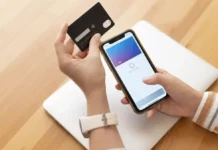Bureaucracy, high taxes and lack of infrastructure have always been at the top of the list of concerns of companies trying to enter the Brazilian market. Multinational enterprises like Walmart, Nintendo, Citibank and Nikon ended their activities in the country in the past couple of years either because they could not adapt their business models to the country, or due to the high level of bureaucracy, or a combination of both.
Whilst some business models require a legal entity to be established in the country due to the scale of the operation or the complexity of their legal structure, most online service providers (B2B or B2C), e-tailers, OTAs and gaming companies do not. This is where cross-border payments come in handy. In simpler words, “cross-border” means that a licensed payment provider with a legal entity established in the country becomes liable for collecting funds locally for a product sold by a company that is registered abroad.
With that in mind, if you sell medication or food supplements, hotel reservations, airline tickets, online or in-school courses, or any kind of service, you could potentially see your approval rates coming from Brazil and other countries in Latin America increase, along with your revenues. This comes at a cost though, and therefore I ask; are you getting the best conditions from your current payment provider?
Choosing the proper cross-border provider goes beyond approval and chargeback rates. Note that unlike most countries, in Brazil, merchants are settled by their acquirers almost 30 days after a transaction has happened. This means that settlement frequency, FX and discounting rates could make your business impracticable, despite how great your product may be. Assuming that all these costs will be passed directly to the shopper, sometimes the reason for a lower approval rate is related to the perception that the end customer has of how much they are paying for the products in their cart.
Are you aware of the FX rates being applied before your company gets settled? Can your operation afford being exposed to FX fluctuation for 30 days before you receive funds? If you are selling in installments, is the discount rate offered up to par with bank practices in Brazil? How long is your PSP taking to notify you about chargebacks?
Choosing a cross-border PSP for the first time is hard, and having to change it after integration and getting your system up and running is even harder, but sometimes we need to step back before moving forward. We want to make your conciliation process simpler, your chargeback reversals faster, and your settlements more transparent, so that you can focus on what needs to be done; keeping your costumers happy.












